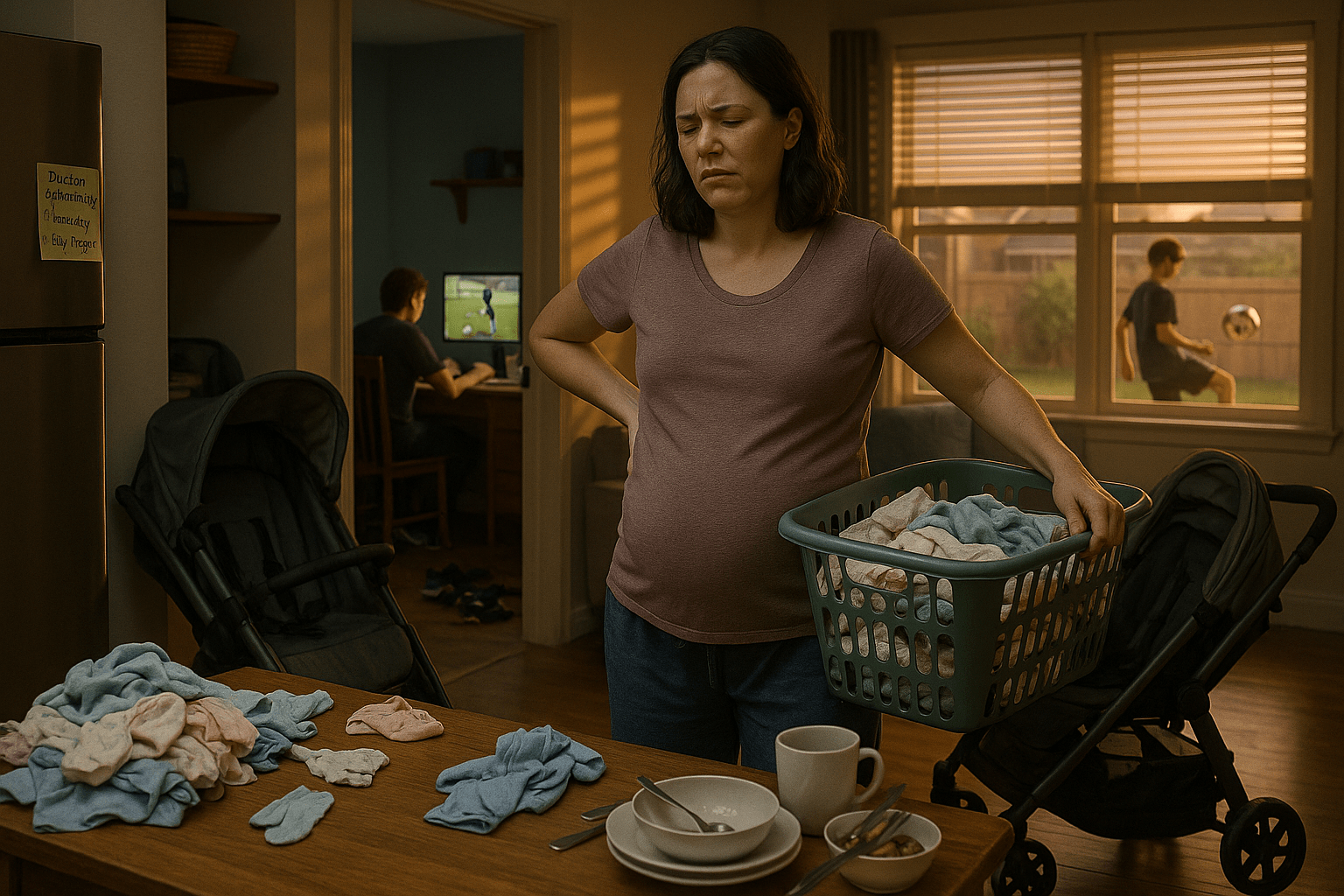The Beautiful Game and the Cost Behind the Curtain
Soccer, for many families, is more than just a game. It’s a dream, a community, a lifestyle. But what happens when that dream starts to overshadow the rest of your life? When your family calendar revolves around tournaments, your finances disappear into club fees and equipment, and the emotional needs of everyone else get pushed to the sidelines?
This is a story many soccer parents can relate to, and it's one that a pregnant mother recently shared about her 13-year-old son who plays in MLS Next 2. Her honesty cut deep: she wasn’t attacking the sport, or her son’s love for the game. She was asking a simple, vulnerable question: “Am I overreacting?”
The answer, many agreed, was no.

The Demands of High-Level Youth Soccer
At just 13, her son trains nearly every day:
Three days a week at a 7-hour indoor soccer camp
Three strength sessions
Two sprint sessions and a track workout
Daily juggling practice
Extra sessions with dad
Recovery sessions like cold plunges
Add in summer travel, out-of-state showcases, and the pressure to perform, and this is a schedule that would challenge most adults.
Parents often speak of nurturing passion and work ethic, but we must also ask: when does structure become overload? Are we raising athletes or machines?

The Strain on the Family Unit
Perhaps more concerning than the physical load is the emotional toll on the family. The mom describes her husband devoting all his energy to soccer. Chores are left undone. Emotional support is scarce. She’s pregnant and overwhelmed, trying to keep the house afloat while also carrying the weight of a dream she didn’t ask for.
She wonders aloud: What happens when the new baby arrives? Who will help? Who will care for her needs?
This isn’t just about one child playing soccer. It’s about balance, and how chasing a single goal can destabilize the entire household.

Youth Soccer is a Business
Let’s be honest: the elite youth soccer world in the U.S. is as much a business as it is a sport. The fees alone are staggering:
$3,500 in club registration
$5,000–$8,000 in travel annually
$3,000 for a cold plunge for recovery
Meanwhile, the mother struggles to get approval for maternity clothes. The disparity is as emotional as it is financial.
Elite clubs often promise visibility, scholarships, and even pro trials. But here’s the reality: top-tier players are typically scouted and don’t pay to play. Families paying thousands often aren’t on the true pro pathway. They’re funding the system, not necessarily benefiting from it.
Early Specialization = Early Burnout?
Multiple voices in the soccer community warn about the risks of early overtraining. At 13, kids should still be exploring, resting, socializing, and yes—having fun. Burnout is real. Many talented kids quit by 15 or 16, worn out by years of intense pressure and unrealistic schedules.
Balance isn’t laziness. Downtime is not wasted time. In fact, it’s often when creativity and joy emerge.

When Soccer Becomes the Whole Identity
There’s another layer to this: the identity trap. When a child becomes “the soccer player” to their family, coaches, and peers, what space is left for them to explore who they are outside the sport?
That burden is magnified when a parent begins to live vicariously through the child’s accomplishments. While passion is beautiful, it can slip into projection. A dream becomes a weight.
The mom isn’t wrong to question the dynamic. In fact, she may be the only one clearly seeing the iceberg ahead.
What Needs to Change
So what can we learn from this story, and what should parents consider?
1. Revisit the Family Equation
A family is a team. When one member’s needs dominate, the whole system suffers. Balance matters. Household responsibilities should be shared. Emotional labor must be acknowledged.
2. Talk About the Hard Things
Conversations about boundaries, priorities, and future expectations are hard—but necessary. If a child is playing at a near-professional level, the family needs support systems in place. Marriage counseling, therapy, or even just scheduled check-ins can make a difference.
3. Redefine Success
Success in youth soccer should not just be about goals and trophies. It should be about character, joy, teamwork, and personal growth. A child who feels loved regardless of their stats is more likely to stay in the game long-term.
4. Diversify the Experience
Encourage your child to explore other interests. Let them rest. Let them be bored. Let them go to a movie or hang out with friends. The most well-rounded athletes are often those who have experienced life beyond the pitch.
5. Support the Parent Behind the Scenes
For the moms and dads juggling carpool, meals, emotional support, and a million unseen tasks: you matter too. Your needs are real. Your health is important. Ask for help. Take the break. Prioritize yourself, even if the club calendar says otherwise.

Soccer is Not the Enemy
This isn’t an anti-soccer piece. It’s a pro-balance piece. Soccer is a beautiful, transformational sport. But no sport should take over your identity, your family, or your well-being.
That mother’s story isn’t rare. It’s one many of us are quietly living. And maybe it’s time we stopped being quiet.
Let’s build youth soccer cultures that support the whole child—and the whole family.
And while you’re reevaluating your family’s rhythm and rest, don’t forget the small things that support your young player’s journey. SGK’s premium youth soccer grip socks and soccer shin guards provide reliable protection, comfort, and confidence through every training session and youth soccer tournament. Give your child the tools they need—and the care they deserve.
Explore SGK’s soccer gear now and support balanced, healthy play from the ground up.

